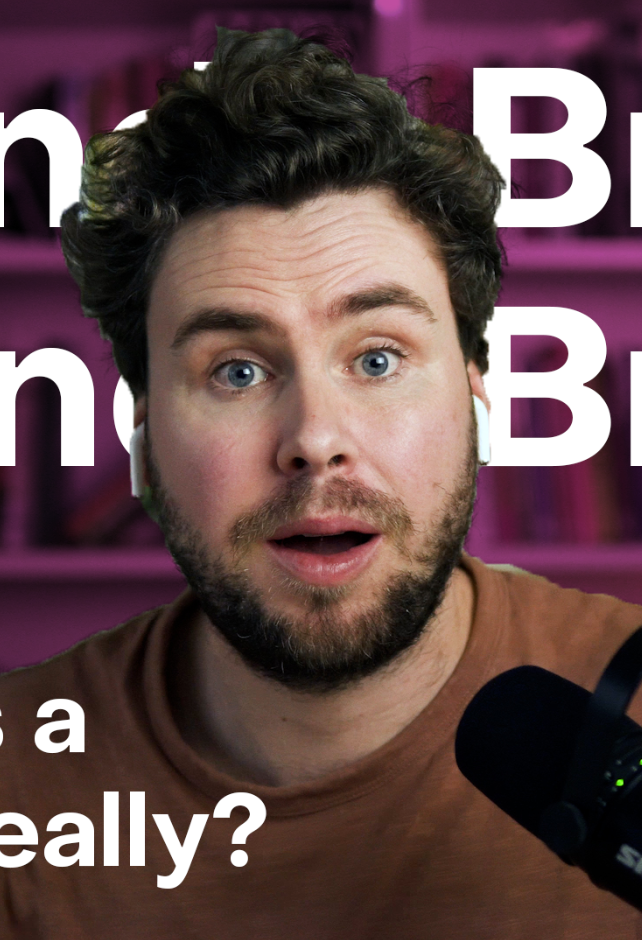What is a brand really? A new definition.
There are so many definitions out there that things can get really confusing. So I decided to collect all these definitions and put them on a Matrix so we have some overview. Finally, I created my own definiton that encompasses the most important aspetcs of a brand.
Find the full walkthrough in the video below. The definition is right beneath it.
A brand is a distinctive experiential promise that represents a business.
Distinctive: it has its own character, it's recognizable and different from competitors
Experiential: it is experienced through visual, auditive, and tonal assets ( any sensorial experience counts)
Promise: it's not just those assets, it also holds a certain guarantee in it, a story, a problem solved, a job done, This is where we make the bridge with the left side of our quadrant, to promise something you need to somehow understand the promise will sound 'promising' to the consumer. Also, a promise needs to be repeated over time and can evolve. And mostly, the promise works as a familiarity bonus, you know Coca-cola will taste the same, over and over again, it makes it easy to buy it again and again
It represents a business: I think brand should be used in the relevant context of business, whether that's a personal brand, a nation thinking about customers, a non-profit organization wanting more donors, or just a regular business. I think talking about a brand in a purely 'cultural' way makes it become to useless and vague, everything and anything can be a brand, but that doesn't help our disciplines.




